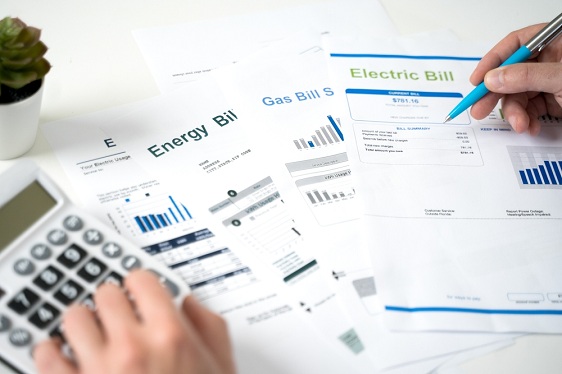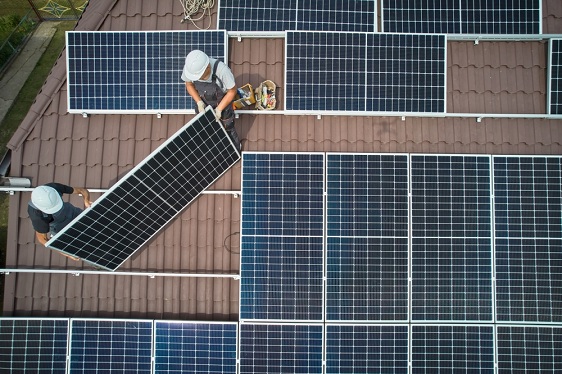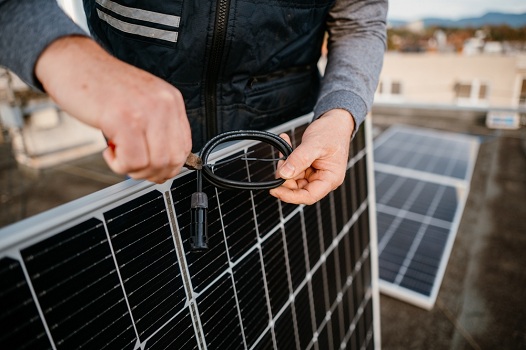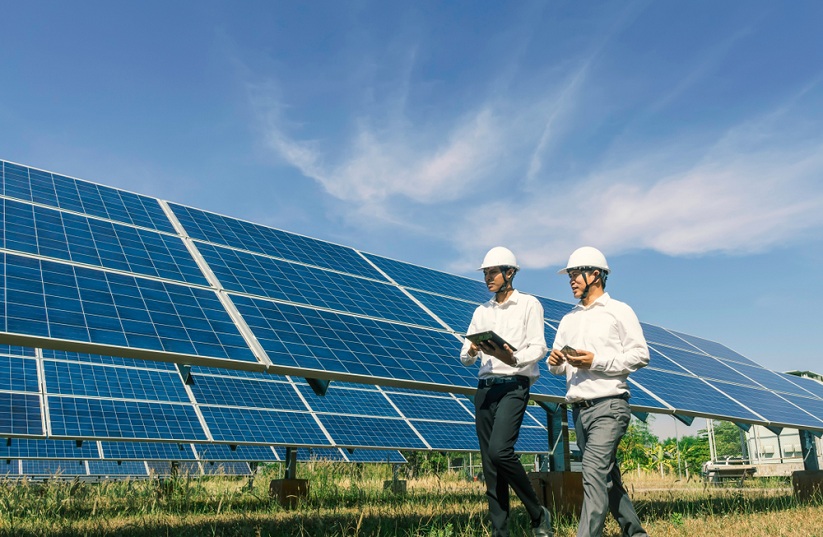Solar energy has become increasingly affordable. More and more homeowners are installing large solar systems. It has led to 10 kW solar systems becoming an increasingly common solar option for large homes and small office businesses.
A 10 kW solar system is still a substantial financial commitment. You may only need a small fraction of that capacity. We’ll examine whether a 10KW solar system is the most suitable option for your home.
Cost of a Standard 10kW Solar Panel
A 10 kW solar power system is priced at about $35,000 without government subsidies. Still, after including the federal income taxes paid by homeowners who install them, the total cost comes to around $22,000.
Remember that solar system prices vary by location. Some states or utilities offer incentives for installing solar panels. These incentives can lower the total costs of installing solar panels even further.
Here's a list of the average costs for installing a 10 kW solar system in various US states. You can use this info to determine how much solar power might cost in your state.
State | Average 10kW solar system cost before tax credit | Average 10kW solar system cost after tax credit |
|---|---|---|
$26,800 | $18,760 | |
$26,100 | $18,270 | |
$27,700 | $19,390 | |
$24,900 | $17,430 | |
$26,700 | $18,690 | |
$27,800 | $19,460 | |
$28,700 | $20,090 | |
$23,300 | $16,310 | |
$28,600 | $20,020 |
Electricity Generated by a 10kW Solar Panel System
A 10 kW solar panel system can generate between 11,000 and 15,000 kilowatt hours (kWH) of energy annually.
The actual output of a 10 kW solar panel depends on your location. If you live in a state with plenty of sunshine, installing solar energy systems will be more cost-effective than living in a state with less sunlight.
Will a 10kW Solar System Cover the Energy Requirement of a Home?
A 10 kW solar power system would provide an average US household with about 10,800-kilowatt hours (kWH) of electricity each year.
But your home's energy needs may differ from the average American home, and your state's energy requirements may vary from the national average.
For example, houses in Louisiana and Wyoming use more electricity per capita than other US regions.
While a 10 kW solar panel system may be perfectly suited for a house in Louisiana, where homes use an average of 10 kW of power per month, it might not be suitable for a house in a state like New Jersey, which consumes much less power per capita than Louisiana.
A 10 kW solar system will generate enough energy for most people to live without relying on the electrical utility company.
You'd need to install some energy storage device to use any surplus power from your solar panels.
What Amount Can You Save on Your Energy Bills with 10 kw Solar Panels?

According to the average electric rate and electricity usage in the United States, a 10 Kw solar panel system helps an average household potentially cut its monthly bill by up to $130, the annual savings being around $1550.
Solar panels will significantly decrease your electricity bills in most situations. Depending on where you live, how much a solar system will save you can vary greatly. Your electricity bill depends on the following:
- Electricity generated by solar panels
- Cost of electricity in your area
- Your local utility company's net metering policy
- For example, if you live in Florida and install a 10 kW solar panel system that produces 1,000 kWh per year, you could expect to pay an average of $150 less yearly for electricity. If a system producing 1,000 kilowatts (kW) of electricity were to be placed in Massachusetts, it would save you an average of $200 per month for electricity.
The variations in savings between Florida and Massachusetts are due to the cost of electricity being considerably cheaper in Florida than in Massachusetts.
What is the Average Payback Time for a 10 kW Solar Panel System?
The average payback time for a 10 kW solar power system depends on your location. It could take ten to twenty years to get back your initial investment.
Depending on where you live, your solar power systems may cost less than others, produce more energy for the same price, or save you more money than others. All these things affect solar panel payback time.
The Number of Solar Panels Needed for a 10kW Solar System

If you want to install a 10 kW solar panel system, you'll need between 25 and 35 panels. To determine how many solar modules you need for a 10 kW solar power plant, you need to know how many watts each panel produces.
For example, you will need 30 panels for a 10 kW system if you install solar panels of 300 watts.
Using panels rated at 350 watts, you'll only need to buy 28 panels to achieve 10 kilowatts.
It's a big investment, so you'll need a large roof space for a 10 kW system.
Roof Size Needed to Install a 10kW Solar Power System
Usually, a 10 kW solar system requires between 450 and 650 sq ft of roof surface.
The exact square feet needed to depend on the wattage (power) of the solar panels installed. As the wattages get lower, the number of solar panels needed gets larger, so you need more roof space for them.
You'd ideally need at least 475 sq ft of southern-facing roof space for maximum solar power generation.
Installing a DIY 10kW Solar System

If you want to go solar yourself, you can buy DIY solar panels to install a 10 kW array. These DIY solar panels usually cost between $15000 to $25000, less than the prices you'd pay a solar panel installation company. But DIY solar power can be hazardous if you aren't careful.
Furthermore, designing the right system layout, including where to place the panels and which type of solar inverters to use, can be difficult. Installing solar panel systems yourself may invalidate the warranty on the system.
If you're going to attempt installing your solar panel arrays yourself, you might want to consider hiring an expert who has experience doing so. Doing so could save you time and effort, but it may cost you more than hiring someone else to do it for you.
Choosing the Best 10kW Solar Panel Installer
You should obtain several estimates from different solar installation companies to find the best among them. From there, you can compare different solar installation quotes to help you find the most suitable option.
It is always better to start with local installers who offer customized installation services and they usually know what kind of incentive programs are available in your area.


